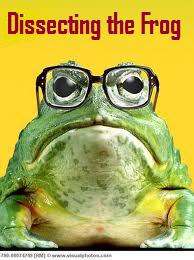Simple Pleasures? (Derek, Channel 4)
It’s not usually a good sign for a comedy if the first questions to be asked of it are ‘Is it funny?’ and ‘What’s it trying to do?’ But it’s possible that Rickey Gervais has produced an exception to this rule in Derek, a one-off show that might yet become a series. In fact, I hope it does, although I didn’t find it particularly funny. Let’s see if I can explain.
Writing about Life's Too Short, I criticised it for being too reliant on the now-familiar Gervais-Merchant tropes. Clearly, Mr. Gervais has been snooping around this blog, but rather than comment directly he has provided the oblique compliment of producing a show which in many ways is unlike anything else he’s done. It’s still shot in a faux-documentary style, and Gervais’s Derek is even more institutionally dependent than David Brent, but that apart it’s a sharp left-turn. The central character labours under no delusions of grandeur, there are no celebs cluttering up the action, and far fewer awkward silences and ‘I-can’t-believe-he-just-said-that’ looks. Derek himself is the kind of person whom you can believe would say inappropriate things, and the people around him are prepared for it (or oblivious to it). He’s the first main character in a Gervais television programme who isn’t a deluded nitwit or the target of the comedy (rather confounding the pre-emptive tizzy into which some commentators had gotten themselves).
Then again, for much of the show it wasn’t clear what the target was, or if there was one. The show focused on the pretty minute minutiae of life in an old person’s home, and low-key interactions between Derek, Dougie (Karl Pilkington) and Hannah (the excellent Kerry Godliman). The few events which were somewhat out of the ordinary (Derek’s accidents involving pudding and a pond, and an altercation at a pub) felt like forced gestures towards conventional comedy. The exchanges were slow-burn, indeed pretty much no-burn for the first half of the show. You couldn’t really call it a straightforward comedy, but ‘drama’ doesn’t feel right either – there was far too little plot or tension to justify that description.
This brings us back to the question of the aim of the show. My feeling is that much of what was weak about it was down to the necessarily slow introduction of the characters and the situation, and a deliberate decision to avoid making fun of anyone. It wasn’t just that the comedy wasn’t broad or obvious, but that it was oblique – we needed to know a bit about Derek before we can start to find the humour in his mannerisms. Neither the scene in the bus with Dougie nor Derek’s glee at Joan’s lottery win would have been as amusing if they had occurred earlier.
To my mind, this kind of comedy requires a series to unfold properly: it’s too slow-moving to work properly in a single half-hour, and it would fit awkwardly with the plotting necessary to carry a feature-length show. That’s not say that I’m sure it would work, but that there is enough here to suggest it could, and I’d like to see the attempt. Put it another way: I’m inclined to say that this was a reasonable effort at a tricky brand of comedy, rather than a mawkish clown-milking-our-tears vanity project. Anyway, given that Gervais is famous enough to make vanity projects if he likes, I’d rather they were (a) different to his previous work, and (b) set in such a resolutely unglamorous milieu. At least give him the credit for trying.
